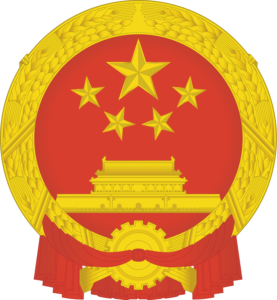
In one of his instructive Facebook posts, Bill Evers, a Hoover Institution scholar, education expert, and old-time libertarian, brought to my attention a story in the Financial Times of September 21, titled “China to Weed Out Foreign Content from Schoolbooks.” It reports that the Chinese government has intensified its censorship of school textbooks, especially targeting private schools. The official goal is to remove “foreign teaching materials that have replaced national curricula.”
This of course is not going to make China great, as the Great Wall did not.
I reacted to the Financial Times story by tweeting:
Shouldn’t the US government retaliate by imposing the same constraints on American schools? This would be analogous to protectionism: “If you hurt your citizens, I will hurt mine. Take that!”
My tweet should appear banal to anybody who realizes two things:
-
Just like most regulations, protectionism hurts first and foremost the residents of the country whose government imposes the trade barriers. (Exceptions exist, but they are rare. Of course, a minority of residents of the “protected” country can benefit, like special interests, who often request the protectionist measures in the first place.)
-
Even if you think that your government should promote the rights of foreign residents against their own governments, there is something morally wrong (and very collectivist) in using your fellow citizens as hostages for that purpose.


READER COMMENTS
B Cole
Sep 26 2018 at 2:01am
The Chinese Communist Party is repressing, suppressing, and oppressing the Chinese population, and it has been getting worse ever since Tiananmen Square. The CCP also runs one of the most managed, controlled, and regulated economies on the planet.
There is always a moral dilemma in dealing with such nations. The obvious historical example of doing business with the Nazis leading into World War II may be instructive, or may not be. Ultimately, the US went full-metal-jacket collectivist to beat the Nazis, and I am glad it did.
It is clear that the multinationals have moved into China as a manufacturing base, and also to seek access to what is undeniably a huge market.
Worth noting is that multinationals can now pour unlimited funds into US elections, and could also always pour unlimited funds into media, academia, and think tanks.
I think this gigantic presence of the multinationals has colored the national debate on trade and relations with China.
It is worth noting that multinationals have fiduciary obligations to shareholders, that trump any national or social concerns, such as concerns about human rights. This is as it should be, as Milton Friedman noted corporations should not have social obligations, other than to comply with law.
Still, for the US citizen, it may be difficult to distinguish between the very powerful voice of multinationals against the national interest of the US.
Mark
Sep 26 2018 at 9:38am
There is no moral dilemma, because sanctioning authoritarian countries generally makes those countries more authoritarian. The US’s protectionist policies leading up to World War II were a major cause of the Nazis’ rise, as Germany was unable to earn export earnings to pay its war debts and reparations. This discredited the centrist parties in Germany that wanted to repay those reparations and caused the rise of the Nazis who wanted to renounce them. The Nazis also campaigned on the fact that Western countries were able to cut off German food imports, meaning that Germany would need to conquer new arable land in Eastern Europe.
Similarly, our policies today are causing a major nationalist backlash in China—to the point where the CCP is even censorsing pro-nationalist blog posts to prevent anti-US public sentiment from exploding.
I’m not aware of any historical examples where sanctions actually worked. Maybe South Africa, but the tide of decolonization would likely have ended apartheid anyway. To the contrary, most peaceful transitions to democracy in this century, from Spain to South Korea, happened after increasing trade and prosperity.
Pierre Lemieux
Sep 26 2018 at 10:46am
Thanks for your comment, B. Cole. Trying to define the “national interest” is useful and teaches much.
Robert EV
Sep 26 2018 at 11:26am
Corporations have no duties at all, except those contractually obliged. Principals employed by the corporation have fiduciary duties. And it’s worth noting (since so many miss it) that principals are citizens of their countries, and countries have higher legal duties of care than the fiduciary: Duty of citizenship, which, unlike the fiduciary duty, can carry the death penalty for violating it in particular ways; and more specific duties such as the spousal privilege which trumps a fiduciary duty in court (assuming the spouses aren’t co-conspirators).
Ergo, it’s a complex topic which deserves more than a two sentence blurb.
Phil H
Sep 29 2018 at 12:12am
It’s important to recognize the realities of China. The CPC does indeed repress and oppress, but it has not been getting worse – it’s got much much better. The amount of freedom that citizens here (I live in China) have today is vastly greater than they had 30 years ago. In part that is a function of them having more money, and in part it is because controls over small things have been relieved. Two examples: the one child policy recently ended; and Chinese citizens are allowed to travel to many more foreign countries than they used to be.
Don’t get me wrong, neither of these things should be controlled at all! But the direction of travel is currently towards more freedom.
P Burgos
Oct 1 2018 at 12:53pm
I would think of it as more of a mixed bag. There are some ways in which China is better than it was 30 years ago, but it is hard to ignore the re-education camps that they are running for Muslims is Xinjiang, where it seems like they are defacto banning the practice of Islam.
Bedarz Iliachi
Sep 26 2018 at 2:13am
Don Boudreaux
Sep 26 2018 at 9:44am
Pierre: Well and truly said, and with impressive succinctness.
Pierre Lemieux
Sep 26 2018 at 10:48am
Thanks, Don.
Robert EV
Sep 26 2018 at 11:30am
Is this an indirect retaliation for the Confucius Institute backlash?
Robert EV
Sep 26 2018 at 11:32am
Specifically, actions by members of Congress and corresponding actions to disaffiliate with CIs by US schools seem to be (equivalent to in the eyes of the Chinese):
Robert EV
Sep 26 2018 at 12:08pm
And to complete a thought, just in case my point is opaque:
Therefore, the Chinese are retaliating against US action. The Chinese are effecting: “If you (the USA) hurt your citizens, I will hurt mine. Take that!”
Pierre Lemieux
Sep 26 2018 at 12:39pm
What are CIs?
Robert EV
Sep 26 2018 at 12:53pm
I didn’t want to type out “Confucius Institute” again. The “cius” spelling gets me, as the default is to type out “cious”. Deletions and double checkings just to verify get annoying.
Warren Platts
Sep 26 2018 at 2:31pm
We should not harm ourselves. The obvious answer is to accommodate the Chinese by self-censoring our own output in order to satisfy Chinese state censors. Like the latest First Man movie that did not include the scene of the American flag being unfurled on the Moon out of fear of offending Chinese sensibilities! It would have reduced profits! #Dragonfly
Pierre Lemieux
Sep 26 2018 at 5:04pm
Warren: Do you propose to self-censor your own output or somebody else’s?
Comments are closed.